Key points
Most of us experience poor sleep from time to time, but when it continues night after night it can become a waking nightmare. We’re going to look in-depth at the possible reasons behind why you can’t sleep at night and we’ll cover:
- how lifestyle choices can interfere with sleep
- the many forms that ‘I can’t sleep’ can take
- how a couple of nights of bad sleep can develop into insomnia
- things that can help when you can’t sleep at night
- what to do if all else fails and you still can’t sleep.
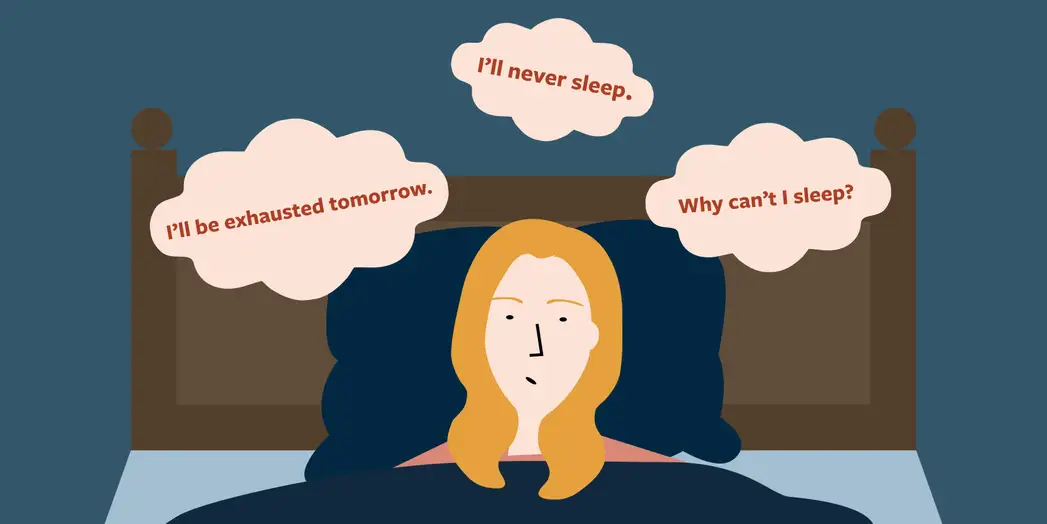
Introduction
Trouble sleeping at night comes in many different forms. For one person, it can be difficulty falling asleep at night, for someone else, they wake in the night and can’t get back to sleep and for others it can be waking up multiple times each night.
If you’re asking yourself “Why can’t I sleep at night?” then this article should help you. We’ve looked at the different shapes and forms that make up not sleeping at night, identified many of the common causes and provided you with plenty of ideas and advice to help you get back to sleeping soundly night after night.
So let’s jump straight in with the big question..
Why can’t I sleep at night?
If you’re asking yourself this, then it’s time to get your detective hat on. There are lots of reasons why we can’t sleep, so we’ll need to dig a little deeper and ask a few more questions to get to the root of it.
Firstly, it can be helpful to pinpoint when the problem started. Can you remember when you last slept well? Was there anything going on in your life at the time your sleep started to dip?
Difficulty sleeping can be temporary, caused by changes in lifestyle, temporary stressors, changes to routine etc. These types of short-term problems often get better on their own.
It’s quite normal to struggle to sleep during the night sometimes. For example, you may sleep badly before a big event or during a particularly stressful period, such as during exams or after a bereavement.
It’s not unusual or problematic to have the odd bad night. But when poor sleep becomes almost the only type of sleep that you get, and you can’t sleep night after night, then something should be done to address the problem.
Longer-term problems with getting to sleep are often linked to psychological or psychiatric causes but they can also be brought about by other medical conditions and some medications.
So broadly speaking, we can say that there’s two main areas that can have a huge impact on your sleep:
- your mental and physical wellbeing
- factors in your lifestyle may be affecting your sleep.
So we’ll explore these in more detail.
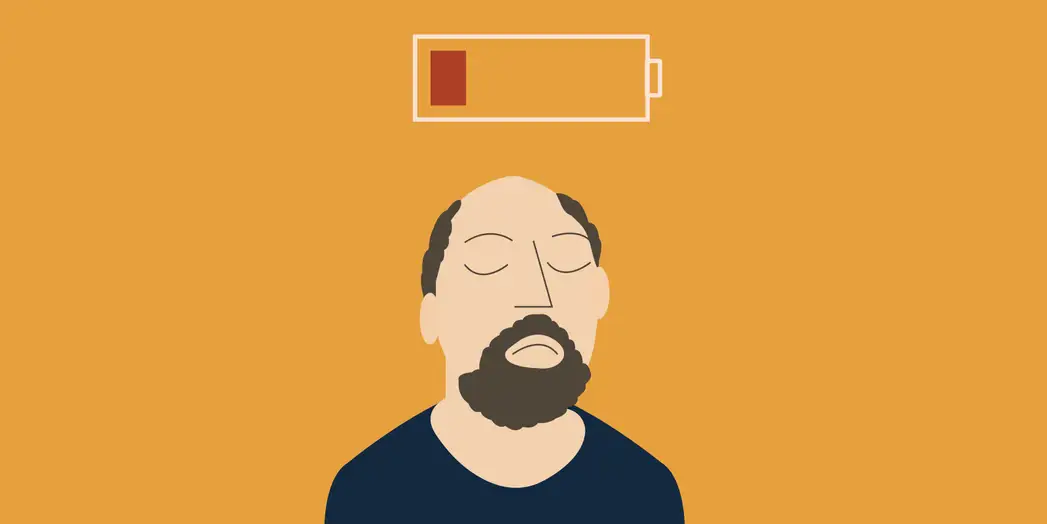
Your wellbeing can affect your sleep
Your sleep and your health go hand in hand. When one’s out of balance, so too is the other. When we sleep, our body and mind go through processes of repair and renewal, essentially getting you mentally and physically prepared to face a new day.
When you’re physically unwell, your sleep can sometimes take a hit and it can be difficult to sleep. Sometimes, sleep disturbance can arise due to a health issue and it can even be a sign of a problem developing.
There’s a host of physical health conditions that can interfere with your sleep, such as:
- respiratory problems
- diseases of the thyroid
- cardiovascular diseases
- chronic pain
- diabetes
- cancer.
So if you have any underlying health issues, it could be a good starting point to check whether they could be contributing to or causing your lack of sleep.
Consider whether any medication you may be taking could come with the side effect of affecting sleep. Is your condition well-controlled, or could it be time for a check-in with your healthcare provider?
Similarly, if you’re experiencing problems with your mental health, your sleep can be affected. Stress, anxiety and depression can all make it more difficult to sleep.
On the flip side, poor sleep can also make symptoms of stress, anxiety and depression worse. So taking care of your mental health can have positive effects on your sleep and when we sleep well, our mental health gets a boost.
If you find that you can’t sleep because stress and anxiety stop you from relaxing enough to sleep, then relaxation exercises may be helpful to you. If you’re waking during the night and your mind starts racing then thought-blocking techniques may be just the thing to help you calm your mind and fall back asleep.
Many drugs used to treat mental health issues can affect sleep, so if you’re taking medication for your mental health and are experiencing sleep problems, then it’s a good idea to check whether any of the side effects include sleep disturbance.
Many medicines, whether they be prescription, over the counter or natural remedies can have the potential to affect sleep, so if you’re taking any medication and you think it’s affecting your sleep, then don’t hesitate to discuss it with your doctor or pharmacist.
They may be able to alter your dosage or offer an alternative treatment option, so it’s worth bringing up your concerns if your sleep is being affected.
So the take home here is that your mental and physical wellbeing can both have a bearing on how well you sleep. If you take care of one, you should see benefits to the other.
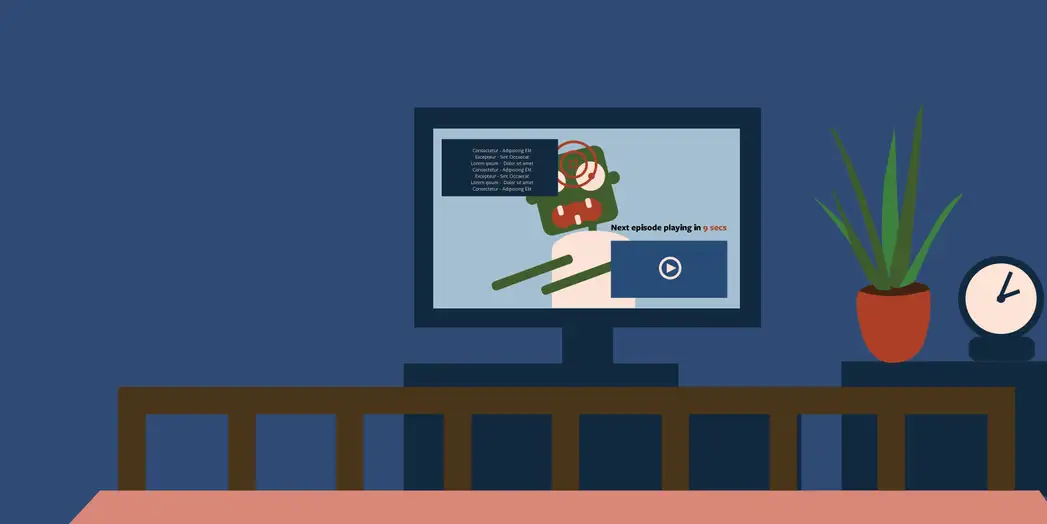
Lifestyle factors can have a huge impact on your sleep
How you go about your daily life can affect your sleep too. Sometimes we don’t realise that things in our daily routine could be sabotaging our sleep, so we’ll go through some of the top offenders now.
First on the list is food and drink. What we put into our bodies and when we choose to indulge can have major effects on how we sleep. The potential sleep disruptor we probably all know about is caffeine, so let’s start here.
Caffeine
Caffeine can come between you and the sleep you need. Most of us will have heard that caffeine can affect sleep and even though it’s so commonly associated with bad sleep, it’s often overlooked when trying to find a cause of poor sleep.
Don’t underestimate the effects of caffeine. Think about your habits right now: how much do you consume each day and how long before bed do you eat or drink anything containing caffeine? Is it possible for you to reduce your intake to see if your sleep improves?
Caffeine affects us all differently, but if you’re having trouble sleeping then looking at your caffeine intake can be a good place to start. Some people can drink coffee right up to bedtime with no negative effect on their sleep, while others can feel jittery after a single cup.
If you’re having difficulty getting to sleep at night, it might be worth looking at when you’re consuming caffeine during the day and whether scaling it back or changing the timing of your caffeine intake could have a positive effect on your sleep.
Alcohol
Another sleep foe can be alcohol. It’s easy to fall into the trap of thinking that an alcoholic drink in the evening can help you to relax and unwind and then fall asleep. In reality, while it may help you to fall asleep quickly, it can then affect your sleep quality during the night.
Cutting back or cutting out alcohol altogether may be one way to improve your sleep, so it’s worth looking at, if you’re someone who does like a nightcap.
Eating too much or too close to bedtime can affect your sleep
Both what you eat and when you eat can have an impact on your sleep. As we get close to bedtime, body temperature begins to drop slightly, and this is believed to be a trigger to fall asleep.
However, eating too close to bedtime can cause our body temperature to rise, which can make it harder to sleep. When we eat, the process of digesting our food generally leads to a slight increase in our body temperature.
So if we eat a meal that’s too large or we eat just that little bit too close to when we want to sleep, then our digestion can interfere with us getting to sleep. Avoiding large, fatty, highly calorific or spicy foods in the run-up to sleep may help you to fall asleep easier.
We’ve covered food and drink and what to avoid in order to improve your sleep, so now let’s explore some lifestyle choices that can help you sleep.
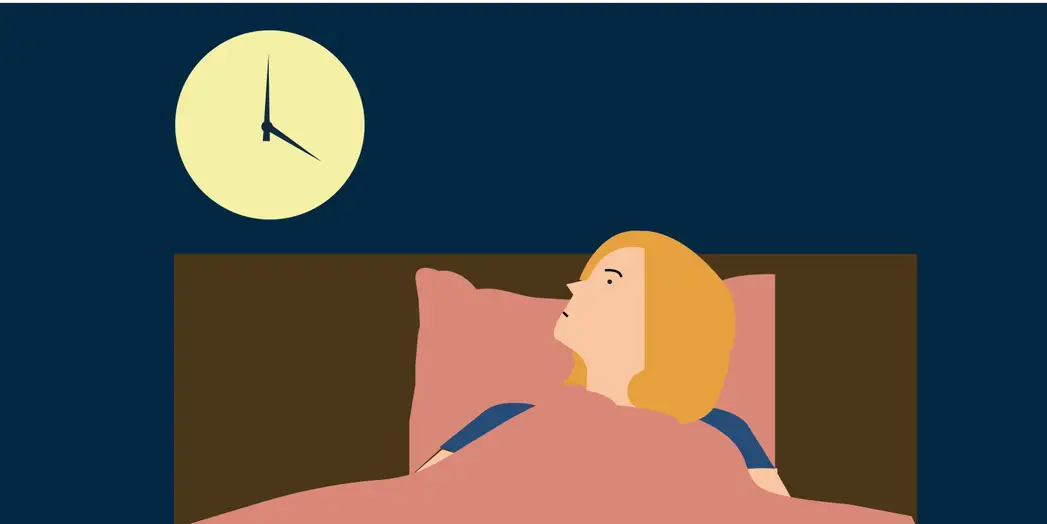
Exercise is a proven sleep booster
A simple lifestyle tweak that can really improve sleep is making time for regular exercise. Our daily lives can feel so busy that fitting in regular exercise may seem daunting. But if you consider the many benefits of physical activity, it’s definitely worth scheduling in a little time for exercise.
It doesn’t need to be vigorous exercise, going for a daily stroll can be a great start. Regular exercise can improve your both sleep quality and how long you sleep for. When you exercise, you expend energy and this helps you to feel tired when bedtime rolls round.
Exercise can boost mood, reduce stress and anxiety and improve your fitness, weight and overall health. All of these benefits can have a positive impact on your sleep, so adding in some exercise to your daily life can improve your wellbeing across the board.
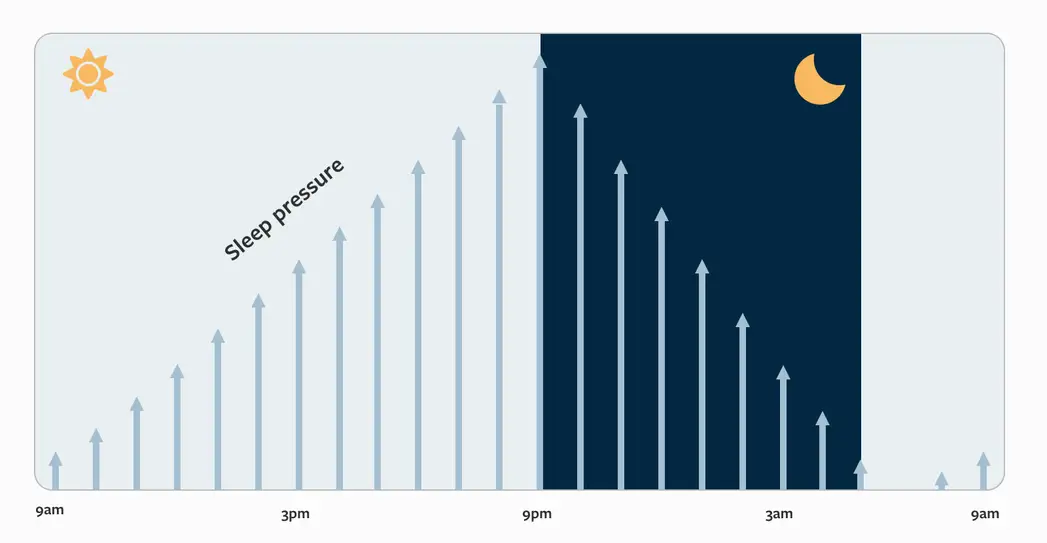
Light is key to sleeping well
Another thing we take for granted with our busy lives is how much light we’re exposed to. Getting outside in the natural light can help you sleep. Our body clock and sleep/wake cycle are set by sunlight. We’re somewhat hard-wired to be awake during daylight hours and sleep during darkness.
But our modern world means that we spend a lot of daylight time indoors and we artificially light up our night times. Workplaces are often brightly lit, many of us work shift patterns that are in opposition to the natural hours of light and dark and this can all get very confusing for the body clock.
If you want to improve your sleep, you can use light to your benefit. Getting exposure to sunlight in the morning is an excellent way to help set your body clock. At its simplest, sunlight acts as a signal to the brain and body that it’s daylight and it’s time to go about daytime activities.
If you find it hard to get up and get going in the morning, especially if you’ve had trouble sleeping the night before, then swapping your sound-based alarm clock for a light-based alternative may be just the thing for you.
These types of alarm work by gradually increasing light levels to wake you up. This is a more natural approach than a sound-based alarm and can be useful to keep your body clock well-aligned to the like/dark cycle of the day.
Conversely, you want your evenings to be less bright, to signal that it’s evening time and it’s time to wind down and prepare to sleep. In the evenings, as bedtime approaches, you should try to keep lighting dim and limit usage of backlit screens, such as smart phones, tablets, computers and TVs.
So set a cut-off time for watching your favourite Netflix show, do a final check of social media feeds and try to have some screen-free time before bed. You can do this as part of a nightly wind-down routine, to prepare yourself for sleep.
Finally, consider your sleep environment. Your bedroom set-up could be coming between you and a good night’s sleep. Do you watch TV or surf the internet in bed? Maybe your room is always a little hot or your bed a little uncomfy…
All these factors can influence how well you sleep. There’s a lot of things that go into ensuring you have the ideal bedroom setup and making minor adjustments to where you sleep can have a huge impact on how well you sleep.
So there you have it. We’ve covered how everything from the food you eat to the bed you sleep on can be behind why you can’t sleep at night. For some people making lifestyle changes can be enough to help them sleep better.
If you still feel like you can’t sleep at all at night, then you may have a sleep disorder that requires treatment. Read on to discover whether your trouble sleeping could actually be a symptom of insomnia and what approaches can help you.
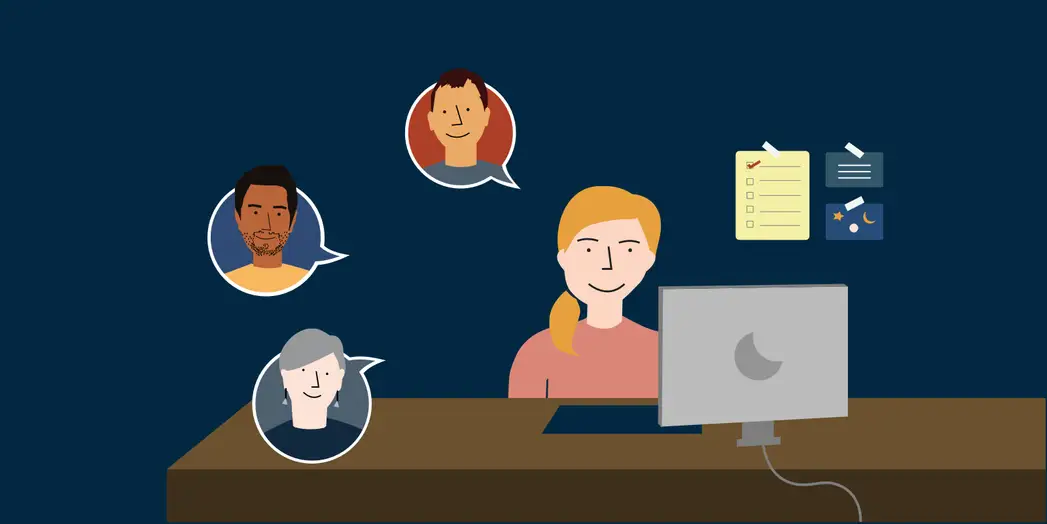
If you can’t sleep, is it insomnia?
Many people label themselves as insomniacs because they’re tired during the day. However, not all sleep deprivation is caused by insomnia. There’s a simple test that you can apply to see if what you’re experiencing could be insomnia.
If you’re lying in bed scrolling through feeds on your smartphone, reading a book or watching TV until late into the night then you’re not really trying to sleep. If that’s what’s causing you to feel tired the next day then it’s not insomnia.
Insomnia occurs when you have trouble falling asleep or staying asleep even though you had the opportunity to sleep. If you’re tired because you stayed up too late watching Netflix then it’s not really accurate to say that you ‘can’t sleep’ — the problem is more likely to be linked to how you’re prioritising your sleep.
If you’re actually giving yourself the chance to get enough sleep and you still can’t sleep, then there’s a good chance that you have insomnia.
When people say ‘I can’t fall asleep’ what they’re describing can be a specific category of insomnia. Insomnia comes in many forms but, for the layperson, it’s most commonly used to refer to problems falling asleep. Maybe one of these describes you:
- You’re exhausted right up until the point you get into bed but as soon as bedtime comes around your brain wants to party.
- You’ve been dreaming of sleep all day long but now that it’s time for dreams they just don’t materialise.
- You’re lying in bed, wide awake, for what seems like an eternity.
- You’re worrying about how little time you have left to sleep before the dreaded alarm.
- No matter how hard you try, sleep just won’t come.
Sound familiar?
This type of insomnia is what people in the sleep medicine field call sleep onset latency insomnia meaning that there is a delay in the timing of getting to sleep. People are thought to have sleep-onset insomnia if they take longer than 30 minutes to get to sleep on three or more nights per week during a single month.
Insomnia is the most frequently occurring sleep disorder and this sub-type of insomnia (where you can’t get to sleep) is the most common. It can be:
- temporary
- acute (short-lived)
- chronic (around for a long time).
If you can’t get to sleep for hours but still have to get up for work or other commitments, then it’s likely that you’ll not be able to get enough sleep for your needs. Because this category of insomnia leads to reduced total sleep time it can really affect how you feel the next day.
Difficulty getting to sleep isn’t the only type of insomnia
In addition to problems getting to sleep, there are two other common sub-types of insomnia and it’s possible to have a combination of all three:
- sleep onset insomnia (‘I can’t get to sleep’)
- sleep maintenance insomnia (‘I can’t stay asleep’)
- early morning awakening insomnia (‘I wake up too early’).
Treatment options vary, depending on the symptoms you’re experiencing and the possible causes.
Symptoms of insomnia include:
- trouble falling asleep at night
- lying awake for long periods of time
- waking several times during the night
- waking up early unable to get back to sleep
- not feeling refreshed after sleeping
- feeling fatigued or sleepy during the day
- having difficulty focusing on a task
- feeling irritable.
Can’t stay asleep through the night? That’s insomnia too
Do you have no problem falling asleep when you get into bed but then wake up one or two hours later unable to get back to sleep? If so, you could have insomnia and there’s a good chance that it could be caused by inadequate sleep pressure.
Sleep pressure starts building from the moment we wake. The longer we’re awake, the greater the pressure to sleep becomes. No one can stay awake forever. When the pressure to sleep is strong enough, sleep will take hold — it’s impossible to resist after a certain point.
However, sleep reduces sleep pressure. So, to stay asleep through the night, the pressure to sleep must be strong enough to initiate sleep to begin with and to keep you asleep through multiple sleep cycles.
If you’re struggling to stay asleep why not let our sleep experts help you identify and fix the root issue of your sleep problem? See how we can help you sleep better.
Insomnia responds extremely well to treatment
In fact, sleep scientists have trumpeted an excellent solution to the problem of insomnia for more than 30 years. We think that it’s really important that more people know about this treatment and can get access to it.
That’s why we created Sleepstation in the first place to begin with — to make access to this type of insomnia therapy available and accessible to everyone who needs it. The treatment is a special type of therapy that addresses all forms of insomnia.
It’s the gold-standard approach and is recommended by doctors all over the world. It’s called Cognitive Behavioural Therapy for insomnia (CBTi). It’s also the treatment methodology that underpins our online sleep improvement programme.
So, if you’d like our support to apply CBTi techniques and overcome your sleep problem start by checking if CBTi could work for you. You can do that by completing our short sleep questionnaire.
Chronic insomnia rarely gets better without treatment and good sleep is vital for your physical and mental health. Don’t suffer through it alone.
Our team of expertly trained sleep coaches, with years of experience helping thousands of people just like you, is ready, willing and able to help you beat your insomnia for good. You might think you ‘can’t sleep’ but that problem doesn’t need to be permanent. Let’s change your mantra:
“I can’t sleep now but, with the right support, I can learn to change this.”
In summary
- Everyone has trouble sleeping from time to time.
- Insomnia comes in many forms.
- Problems getting to sleep are the most common.
- If you can’t sleep, you’re not alone.
- Causes and symptoms vary from person to person.
- With the right help, all forms of insomnia are treatable.
- CBTi is the most effective treatment for insomnia.
- There is hope and you can learn to sleep better.